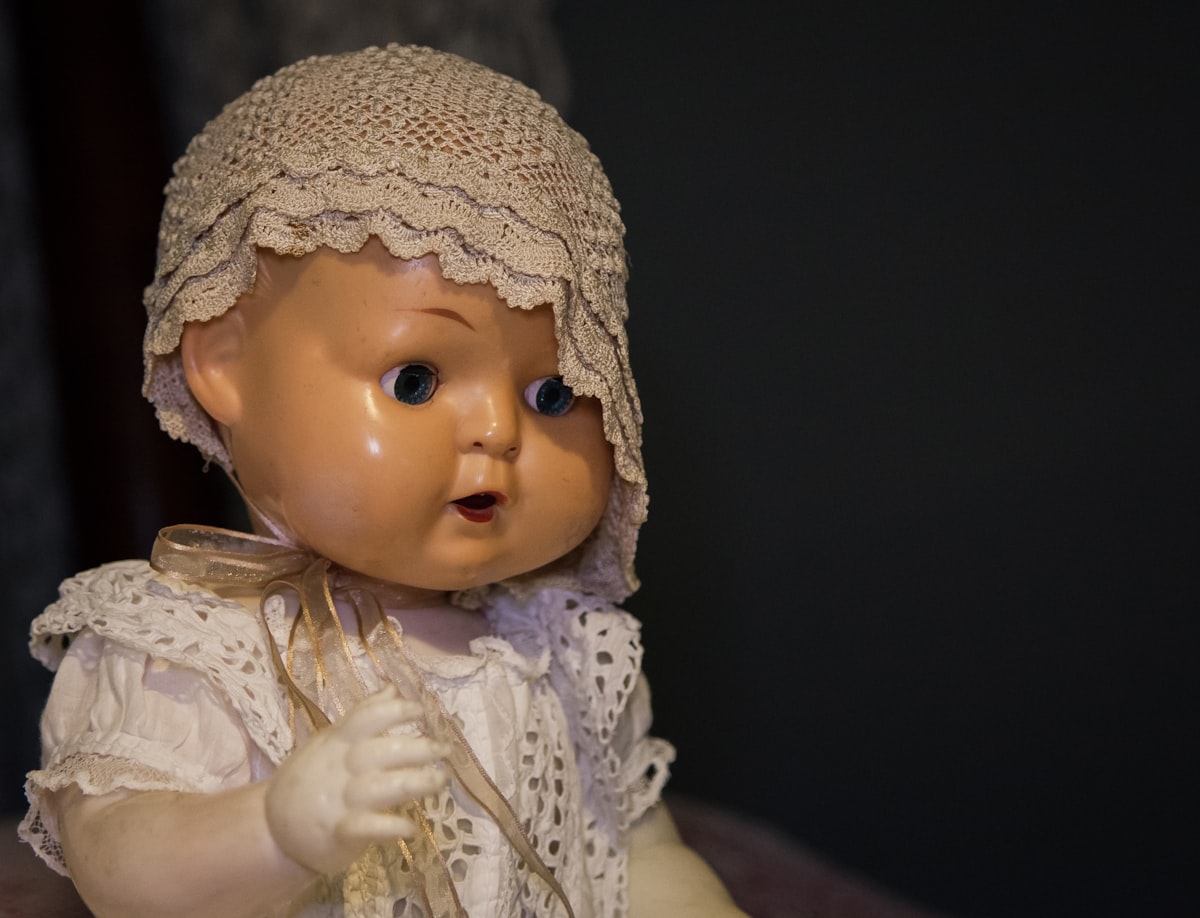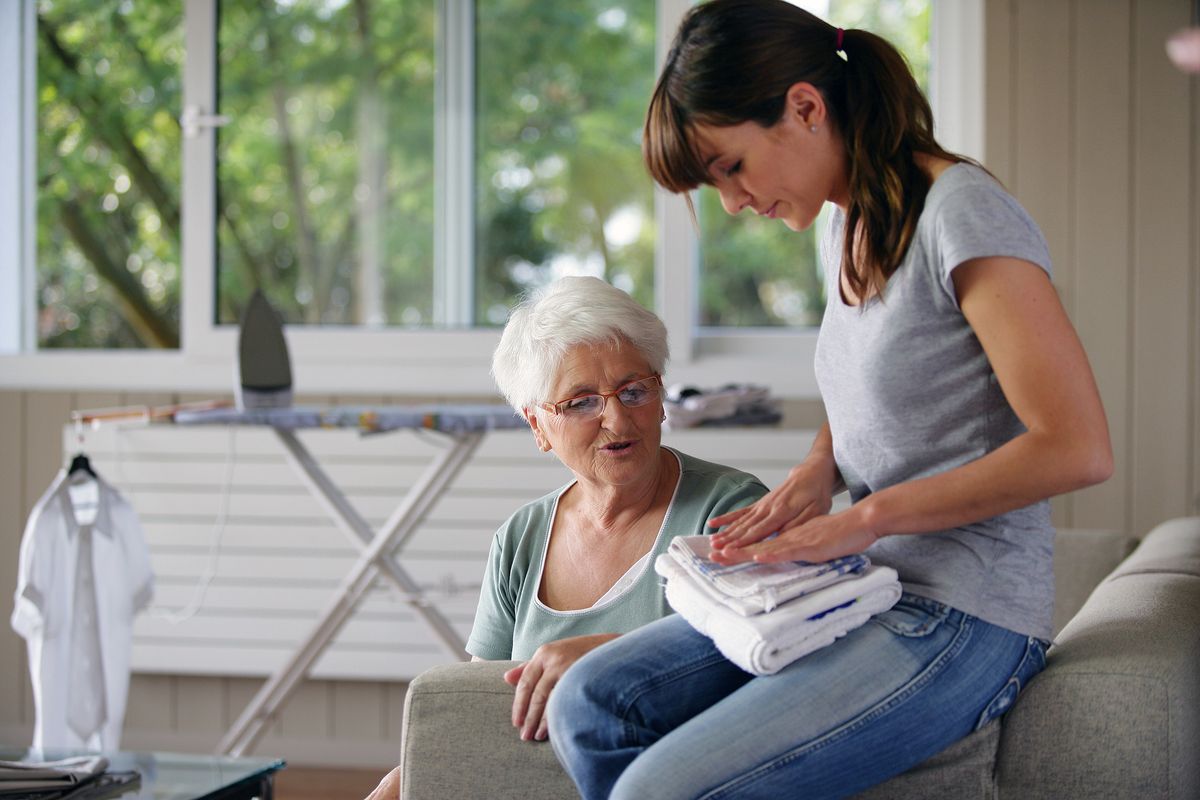Doll Dementia Therapy: Comfort & Joy with Baby Dolls
Discover how baby doll therapy can bring comfort and joy to individuals with dementia. Learn about alternative options, such as interactive stuffed animals and PARO, and tips for introducing these activities to your loved one.

What is Baby Doll Therapy?
Baby doll therapy, also known as doll therapy, is a non-pharmacological intervention designed to meet the psychological needs of individuals living with dementia. This therapeutic approach involves presenting a person with dementia with a baby-like doll that has human-like features, such as facial expressions, sound, and texture. The goal of baby doll therapy is to promote attachment, comfort, and a sense of purpose, thereby reducing the behavioral and psychological symptoms often associated with dementia.
By engaging with a baby doll, individuals with dementia can experience a sense of nurturing and caregiving, which can evoke positive emotions and memories. This form of therapy taps into the innate human need for connection and affection, providing a comforting and familiar presence that can help alleviate feelings of anxiety and agitation. The baby doll serves as a catalyst for emotional expression, allowing individuals to channel their care and love in a meaningful way.
This is a video that explains baby doll therapy in dementia
Benefits of Doll Therapy
Research has shown that doll therapy can offer numerous benefits for individuals with dementia. One of the most significant advantages is its ability to reduce agitation, aggression, and other challenging behaviors. By providing a calming and comforting presence, baby dolls can help to soothe individuals who may be experiencing distress.
In addition to reducing challenging behaviors, doll therapy can also improve mood and alleviate symptoms of depression and anxiety. The act of caring for a baby doll can bring joy and a sense of accomplishment, enhancing overall emotional well-being. Furthermore, doll therapy can enhance communication and social interaction, as individuals may be more inclined to engage with others while caring for their doll.
Doll therapy also meets past attachment needs, promoting feelings of comfort and security. For many individuals with dementia, the baby doll can serve as a reminder of their own experiences with caregiving, providing a sense of purpose and fulfillment. This therapeutic approach can also reduce stress and promote relaxation, contributing to a more peaceful and contented state of mind.
How Does Baby Doll Therapy Work?
Baby doll therapy works by tapping into the individual’s past experiences and emotions, particularly those related to caregiving and nurturing. The baby doll serves as a catalyst for emotional expression and attachment, allowing the individual to express feelings of love, care, and responsibility. This therapeutic approach provides an opportunity for individuals with dementia to engage in meaningful activities, such as caring for the doll, which can help to promote a sense of purpose and fulfillment.
In addition, the baby doll can serve as a tool for communication and social interaction. Individuals with dementia may find it easier to connect with others and express their emotions in a safe and supportive environment while caring for their doll. This can lead to improved social engagement and a stronger sense of community.
The therapy also helps to reduce stress and promote relaxation, which can be particularly beneficial for individuals with dementia who may experience anxiety and agitation. By providing a comforting and familiar presence, baby doll therapy can help to create a more peaceful and calming environment.
Overall, baby doll therapy is a valuable tool for promoting emotional well-being and reducing behavioral and psychological symptoms in individuals with dementia. By providing a sense of purpose, comfort, and attachment, doll therapy can help to improve the quality of life for individuals with dementia and their caregivers.
Doll Therapy Dementia Activity Ideas: Nurturing Well-Being in Care
Discover how baby doll therapy can bring comfort and joy to individuals with dementia. Learn about alternative options, such as interactive stuffed animals and PARO, and tips for introducing these activities to your loved one.

Caring Companionship
Baby doll therapy for individuals with dementia can be a heartwarming way to boost their self-esteem and overall sense of well-being. I recently received a question from a family caregiver about whether it was appropriate to provide her grandmother, who has dementia, with a baby doll. Family members may have concerns about the appropriateness of doll therapy and the need for their involvement in the process. This particular caregiver had young children, including a 3-year-old daughter named Bella, who had a collection of baby dolls. As Bella’s grandma often assisted with caring for these dolls during playtime, it sparked the idea of gifting her a baby doll.
This video was created specifically for dementia patients. Meet Paro
Recently, Bella received an interactive plush baby monkey as a birthday gift. This robotic baby monkey came with a banana-shaped bottle and exhibited lifelike movements, such as eating and cooing. Interestingly, it seemed to evoke fond memories for her grandmother of a time when her own children were infants, allowing her to recall those cherished moments. The caregiver mentioned that her grandmother was experiencing fewer and fewer good memory days but held onto the ones she still had.
With this heartwarming scenario, the family caregiver inquired about introducing a baby doll to her grandmother and how best to go about it. The baby monkey had captivated grandma, and she thoroughly enjoyed feeding, caring for, and cuddling with it. However, poor little Bella was occasionally dismayed because her grandma often believed everything belonged to her.
The tender companionship of baby dolls and stuffed animals can bring immense comfort to individuals with dementia. For those seeking guidance on introducing a stuffed animal or baby doll to a loved one with dementia, here are a few suggestions:
- Strategic Placement: After acquiring the baby doll or stuffed animal, consider leaving it in a communal area in the house where your family member is likely to come across it naturally.
- Gentle Introduction: For some, simply showing the baby doll or stuffed animal and explaining it can be sufficient. Those with a history of nurturing or a love for animals often readily accept the newfound gift, engaging in activities like rocking, singing, and cuddling.
- Expressing Affection: Your family member with dementia may find comfort in expressing affection and love through touch, a fundamental human need. Baby dolls and stuffed animals can serve as a conduit for fulfilling this need.
It’s worth noting that many individuals with dementia continue to find solace in their baby dolls or stuffed animals, even during the later stages of the condition. If you have any questions about the benefits of this therapy, consider exploring the remarkable PARO, although it may be costly for individual use. Fortunately, there are more affordable alternatives that can bring equal comfort and joy to those in need.
FAQ for "Doll Dementia Therapy: Comfort & Joy with Baby Dolls
What is doll dementia therapy?
Doll dementia therapy, often involving a baby doll, is a non-pharmacological intervention used to ease behavioral and psychological symptoms in people with dementia. It provides emotional comfort, promotes social interaction, and meets past attachment needs.
How does baby doll therapy benefit people with dementia?
Baby doll therapy can promote attachment, improve mood, and diminish challenging behaviors. It addresses psychological symptoms by allowing people to interact with dolls, offering a sense of purpose, comfort, and familiarity, especially for those with past attachment to children.
Why are baby dolls used in dementia care?
Baby dolls evoke a caregiving instinct and provide a therapeutic means for people with severe dementia to express and fulfill nurturing feelings. This helps alleviate agitation, improve social interaction, and promote a stronger sense of well-being.
Are there any studies supporting doll therapy for dementia?
Pilot studies and case study approaches have shown positive effects of doll therapy in dementia care, especially for institutionalized patients. While more research is needed, findings suggest significant benefits in mood, behavior, and psychological symptoms.
Is doll therapy appropriate for all people with dementia?
Doll therapy is not suited for everyone; responses can vary. Caregivers should observe how each individual interacts with the doll, ensuring it meets emotional needs without causing confusion or discomfort.
How do caregivers and family members feel about doll therapy?
While some family members may initially feel uncertain, many report seeing the positive effects of doll therapy on their loved ones. It can foster engagement and reduce the emotional and psychological burden of dementia-related behaviors.
Can baby doll therapy replace other dementia treatments?
No, baby doll therapy is a supplementary intervention meant to complement traditional treatments. It is one of many non-pharmacological interventions that can improve the quality of life and well-being for people with dementia.
What guidelines should caregivers follow when introducing doll therapy?
Caregivers should introduce dolls gradually, observing for any signs of distress. Selecting an appropriate doll, ideally one that resembles a real baby, can increase comfort. Duplicate dolls may be used to ensure consistent availability and familiarity.
What are some key benefits of doll therapy for nursing home residents?
Nursing home residents with dementia benefit from reduced agitation, fewer challenging behaviors, and improved social interaction. Doll therapy provides comfort, a sense of meaning, and meets the strong need for attachment, common in older adults with cognitive impairment.
Is there any stigma or concern associated with using doll therapy for dementia?
Some may initially feel concerned that it infantilizes adults; however, the therapeutic benefits and positive interactions often outweigh this concern. Properly managed, doll therapy respects the dignity and psychological needs of people with dementia.
How can doll therapy impact caregivers and health services?
Doll therapy can reduce caregiver stress by helping manage difficult behaviors without medications, which supports a healthier environment for everyone. It also aligns with health services’ goals to offer non-invasive treatments in dementia care.
How does doll therapy address attachment needs in people with dementia?
Many people with dementia have strong attachment needs, which baby dolls help meet by simulating a caregiving role. The dolls evoke a sense of familiarity and comfort, reconnecting them to past attachment experiences and promoting feelings of security and purpose.
Does doll therapy offer benefits for cognitive impairment beyond emotional comfort?
Yes, doll therapy can stimulate mild cognitive engagement as patients interact, nurture, and care for the doll. This interaction fosters a sense of meaning, helps maintain some cognitive functions, and often encourages social and verbal interaction.
Are baby dolls only beneficial for severe dementia, or can they help people with mild cognitive impairment?
While primarily used for severe dementia, baby doll therapy can also benefit those with milder cognitive impairments by providing social and emotional support. The doll serves as a tool to express emotions and maintain a level of cognitive and social engagement.
Can introducing a baby doll lead to confusion for people living with dementia?
Generally, the response to baby dolls is positive, but it’s essential for caregivers to observe individual reactions. Properly introduced, dolls usually do not cause confusion but instead fulfill a deep emotional need. Caregivers can ensure that interactions are beneficial by closely observing patient responses.
How does doll therapy impact emotional problems such as loneliness and anxiety in nursing home residents?
Doll therapy reduces feelings of loneliness and anxiety by offering companionship, giving patients a therapeutic outlet for emotions. This companionship can ease psychological symptoms and help patients feel connected, especially in institutionalized settings.
Are there therapeutic purposes for using dolls beyond dementia treatment?
While doll therapy is widely known in dementia care, its therapeutic purposes extend to other emotional or psychological conditions where individuals benefit from comforting, nurturing roles. Dolls can aid in reducing stress, offering calm, and promoting a positive mood.
Is doll therapy a recognized non-pharmacological intervention in dementia care guidelines?
Yes, doll therapy is increasingly recognized as a non-pharmacological intervention within dementia care guidelines due to its effectiveness in addressing behavioral symptoms and improving well-being without medication. However, more formal research is encouraged to further validate its use.
How does doll therapy support the needs of family caregivers?
Doll therapy can ease the caregiving process by diminishing challenging behaviors and reducing caregiver burden. As family members see their loved ones engage positively, it can bring relief, lessen emotional strain, and support better interactions in their caregiving roles.
What research has been conducted on doll therapy’s effects on behavior and well-being?
Studies and case reports have shown positive effects, highlighting doll therapy’s impact on diminishing aggression, improving social interaction, and enhancing mood. More extensive research is underway to quantify its behavioral and psychological benefits for people with dementia.
Are there any concerns regarding the ethical implications of doll therapy for adults?
While there are concerns about infantilization, experts and caregivers find that when used respectfully and appropriately, doll therapy supports dignity and autonomy. Dolls are introduced in a way that respects the person’s needs, not as toys, but as therapeutic tools.
How can doll therapy benefit social interaction among people with dementia?
Doll therapy can encourage interactions with both caregivers and other residents, fostering a sense of community and connection. These positive social interactions can improve overall mood and reduce feelings of isolation for those in nursing home environments.
How does doll therapy help address attachment needs and behaviors rooted in past experiences?
Many people with dementia retain a need for attachment based on past life roles. Doll therapy taps into these past attachment needs, allowing patients to re-experience the joy and comfort associated with caring for a child, fulfilling an instinctive role that brings comfort.
Are duplicate dolls recommended in dementia care settings?
Yes, duplicate dolls are helpful to ensure that individuals become familiar and attached to a specific doll, without disruption if one doll becomes unavailable. This continuity can help maintain a sense of stability, routine, and attachment for those in care.
What role do caregivers play in facilitating doll therapy?
Caregivers introduce, guide, and monitor doll therapy interactions, ensuring that the person with dementia responds positively. Their role is to provide support, observe any changes in behavior, and ensure the therapy meets emotional and attachment needs effectively.
How does doll therapy promote a person-centered approach to dementia care?
Doll therapy respects each person’s unique past, emotional needs, and behaviors. It is a therapeutic means focused on the individual’s well-being, emphasizing comfort and positive engagement rather than generalized treatments, aligning with person-centered care values.





You might also like this article:






